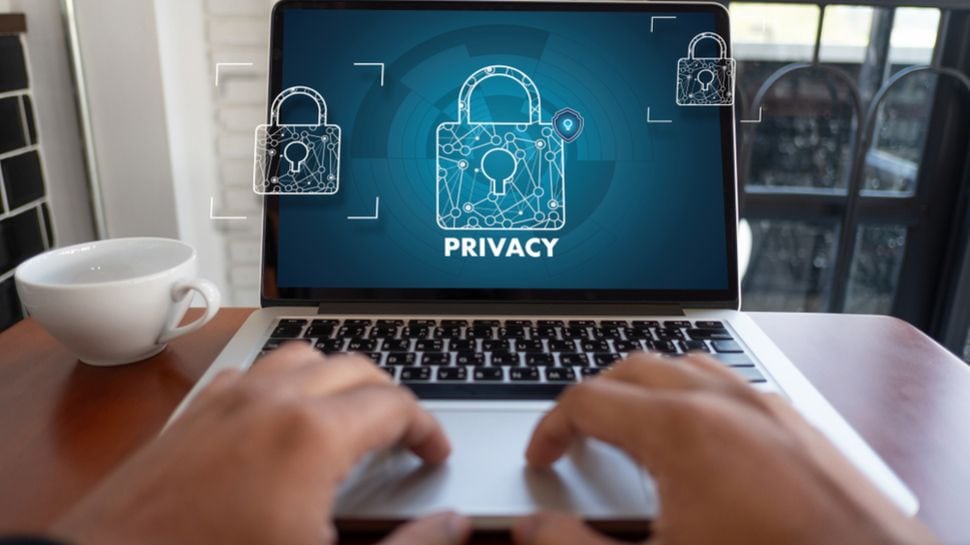You wake up in the morning and scroll through your social media as you drink your first cup of coffee for the day. You log into your work computer and start responding to emails, sharing sensitive files with your coworkers, and scheduling remote calls with your clients. You use your favorite food delivery app to get lunch for the day, send a few memes to your friends, and start browsing Amazon for holiday presents.
You use the internet for virtually everything you do. You spend hours each day online, either via a smartphone or a PC. However, little did you know that someone secretly monitors all your activities. Some of these entities are benign. For instance, marketers want to show ads to people interested.
Even if you feel like you have nothing to hide, you should never take your privacy for granted. Look at just a few of the most common internet privacy issues and find out what you can do to get around them.
Virtually all websites are tracking you
Cookies are critical for improving site performance. These tiny files stored in your browser monitor your page activity, saving your information so that you can have a more convenient experience. Cookies allow sites to remember your login information, keep your shopping cart intact even after you close the tab, offer personalized recommendations, and more.
However, many cookies also track your activity long after abandoning a site. They keep an eye on everything you do – every site you visit, how long you stay on each page, which items you purchase online. Much of that information is then sold to marketers for better targeting.
If you want to improve your privacy, you’ll need to delete your cookies regularly or use your browser’s incognito mode, which deletes all cookies as soon as you close the tab. Of course, many browsers already block third-party cookies. Others, like Google Chrome, still consider the options to make the transition as smooth as possible.
Everyone knows what you did last summer
Every company from Google to Facebook, TikTok, your Internet Service Provider (ISP), and even government agencies collect and store gigabytes upon gigabytes of user data. Where you eat, which social media pages you engage with, which banks you use, where you traveled to last year – it’s all valuable data that can be sold for profit or used in ways you cannot imagine.
Identity theft is more common than you may think
Although most internet users see identity theft as a myth, as something that happens to high-profile people, sadly, it’s more common than you might think, and it could happen to anyone.
If your data, credit card information, or even email password is leaked, you could face serious problems – financial and legal.
You need to be very careful with all your sensitive information to stay protected. Don’t share your name, physical address, date of birth, and other personal information on random websites. Don’t log into your online accounts via unsecured networks or shared devices, review your credit reports, and be cautious.
How you’re harming your internet privacy
It’s not just some big company or an evil hacker that can harm your internet privacy and security. You might be causing problems for yourself.
Some of the riskiest behaviors include using the same credentials and passwords on all sites and accounts, staying logged in on websites for the sheer convenience of it, clicking “agree” without reading through the terms and conditions, downloading shady files, and opening suspicious email attachments.
If you want to protect your internet privacy, you first need to weed out these risky behaviors. No expensive firewall or advanced VPN will keep you safe if you don’t know how to use the internet safely.
Take your internet privacy seriously
Once you’ve identified and eliminated risky behaviors, you can turn your internet privacy up a notch by following the best practices:
- Update your software
Most software updates don’t introduce new features or reinvent the overall design – they patch up security holes. Outdated software typically has known vulnerabilities that can easily be exploited, so make sure that you always accept updates as they come out. It is best to set automatic updates to ensure that your device is software is up to the latest standards.
- Get a trusted VPN
A Virtual Private Network can help you get closer to privacy and anonymity online. It encrypts your traffic, masks IP address, and safeguards your data. Thus, it secures your connection to a network, meaning you can even connect to unknown hotspots. Since VPN servers handle thousands of connections, you will also blend into the crowd with other connected users.
- Invest in a good firewall
A good firewall and an antivirus program are your primary defenses. The firewall will prevent unwanted network access, while the antivirus will secure your device against all types of malware infections.
- Be mindful of your passwords
Finally, be smart with your passwords. No one should be able to guess your passwords from your publicly available information – birthday, pet name, favorite TV show, etc. Use random strings of characters and never use the same password for multiple accounts. If you apply the same password for multiple accounts, both of them can be put in danger with a single leaked password.
Final thoughts
Internet privacy is something that no one should take lightly. Cybercrimes are getting more frequent and more sophisticated. Take your security into your own hands and be mindful of how you use and access the web.
